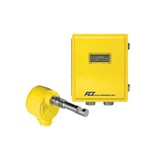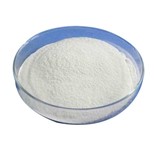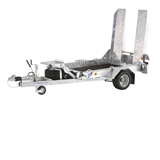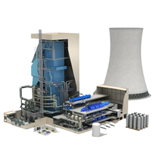The project will help researchers better understand overall species diversity and build the foundation for a longer term goal of generating new technologies for livestock and plant-based industries.
The Venter Institute will use whole genome shotgun sequencing to characterise microorganisms and describe environmental diversity. This approach was used to characterize 1,800 previously unknown microbial species and 1.2 million novel genes in water samples from the Sargasso Sea, an environment previously thought to be well-characterized and low in diversity.
In addition to creating an inventory of the microorganisms and their gene complements, the collaborators hope to discover and characterise at the genomic-level new species of bacteria and viruses. Researchers also announced that they intend to make their findings available to the scientific community and the general public.
Victoria’s Minister for Innovation, John Brumby, said, “Decoding this DNA will enable researchers to identify new microbes and genes and to understand their potential role in many environmentally significant processes, and in turn facilitate the development of a range of new technologies. Further, the partnership is designed to fast-track the development of Victoria’s already outstanding capabilities in the rapidly evolving science of environmental genomics.” He added that Victoria’s investment will contribute to the development of thriving innovative industries and to a healthier environment.
Microorganisms are of scientific and commercial interest because, while they are responsible for most of the chemical transformations within the earth’s major biogeochemical cycles (i.e., the water cycle), they are not well understood. Soil harbours the most diverse microbial communities on earth. Further, both soil and ruminant digestive microbes have the ability to degrade waste products, imbuing them with a vast number of potential applications in medicine, agriculture, manufacturing and mining.
“The power of whole genome shotgun sequencing is that it can unlock biological information both at the individual species level and at the whole ecosystem level, opening up a vast new world of discovery for researchers,” noted Dr. J. Craig Venter, founder and president of the J. Craig Venter Institute. “Soil is an incredibly rich and vastly untapped ecosystem. Understanding the microbial communities there will be an invaluable complement to what we have recently learned about ocean communities, in turn providing a better understanding of the global environment and our impact on it.”
Victorian Minister for Agriculture, Bob Cameron said, “This collaborative research program will also provide the opportunity to explore the most diverse ecosystems on the planet using two agriculturally significant Victorian soils,” Cameron said.
DPI Scientist Dr. Pauline Mele, who will lead the project for Victoria, said as much as 90% of the microorganisms present in our soils are yet to be identified and represent the world’s largest ‘gene reservoir’.
“The profiling of DNA from soil microorganisms will allow us to identify how soils differ in fertility and to quantify the impact of management on fertility,” Dr. Mele said. “Perhaps of even greater importance are the benefits that may be derived from identifying novel bacteria and their genes that code for important processes, such as nutrient generation and recycling and antibiotic production. In addition, we’ll be looking for genetic information relating to nutrient recycling, degradation of pesticides and other chemicals, disease organisms of plant livestock and human significance and associated biocontrol microbes, while compiling metagenomic libraries of a rumen microbial community,” added Dr. Mele.
- Suppliers
- New to IndustrySearch? Book a Demo
- Advertise with us
- Login
- Email Marketing
- Buyers
- Get Quotes
- Articles & Ideas
- Login
- Subscribe to newsletter
- My Details
- Get Quotes
- Automation & Control
- Automotive Workshop Equipment
- Commercial Cleaning Equipment & Supplies
- Construction Equipment & Heavy Machinery
- Conveyor Systems & Components
- Electrical & Power Generation Equipment
- Electronic Components
- Farming & Agriculture
- Food & Beverage Processing
- Forklifts & Forklift Attachments
- Hydraulic & Pneumatic Equipment
- Industrial Materials, Tools & Components
- Industrial Pumps
- IT Hardware & Industrial Computing
- IT Software & Applications
- Laboratory Equipment & Instruments
- Manufacturing & Industrial Equipment
- Material Handling & Lifting Equipment
- Metalworking & Machining
- Mining Equipment & Machinery
- Packaging & Labelling Machinery
- Pallet Handling Equipment
- Personal Protective Equipment
- Security & Surveillance
- Test & Measurement
- Transport & Logistic Equipment
- Warehouse Storage, Shelving & Racking
- Waste Treatment & Environmental Management
- Welding Machines & Accessories
- Woodworking & Joinery Machines
- Workplace Equipment
- Workplace Safety Equipment
- Get Quotes
- Automation & Control
- Automotive Workshop Equipment
- Commercial Cleaning Equipment & Supplies
- Construction Equipment & Heavy Machinery
- Conveyor Systems & Components
- Electrical & Power Generation Equipment
- Electronic Components
- Farming & Agriculture
- Food & Beverage Processing
- Forklifts & Forklift Attachments
- Hydraulic & Pneumatic Equipment
- Industrial Materials, Tools & Components
- Industrial Pumps
- IT Hardware & Industrial Computing
- IT Software & Applications
- Laboratory Equipment & Instruments
- Manufacturing & Industrial Equipment
- Material Handling & Lifting Equipment
- Metalworking & Machining
- Mining Equipment & Machinery
- Packaging & Labelling Machinery
- Pallet Handling Equipment
- Personal Protective Equipment
- Security & Surveillance
- Test & Measurement
- Transport & Logistic Equipment
- Warehouse Storage, Shelving & Racking
- Waste Treatment & Environmental Management
- Welding Machines & Accessories
- Woodworking & Joinery Machines
- Workplace Equipment
- Workplace Safety Equipment
Trusted by 1,000,000+ Australian industrial buyers
Buyers
- Discover products & solutions
- Login
- Subscribe To Newsletter
- Browse All Products
- Read Articles
Suppliers
Advertise
- Promote your products & solutions
- New to IndustrySearch? Book a Demo
- Login / Forgot Password
- Advertise Your Products
- Success Stories
- Email Marketing
- Suppliers
- Advertise with us
- Login
- Email Marketing
- Buyers
- Get Quotes
- Articles & Ideas
- Login
- Subscribe to newsletter
- My Details
Get Quotes
- Automation & Control
- Automotive Workshop Equipment
- Commercial Cleaning Equipment & Supplies
- Construction Equipment & Heavy Machinery
- Conveyor Systems & Components
- Electrical & Power Generation Equipment
- Electronic Components
- Farming & Agriculture
- Food & Beverage Processing
- Forklifts & Forklift Attachments
- Hydraulic & Pneumatic Equipment
- Industrial Materials, Tools & Components
- Industrial Pumps
- IT Hardware & Industrial Computing
- IT Software & Applications
- Laboratory Equipment & Instruments
- Manufacturing & Industrial Equipment
- Material Handling & Lifting Equipment
- Metalworking & Machining
- Mining Equipment & Machinery
- Packaging & Labelling Machinery
- Pallet Handling Equipment
- Personal Protective Equipment
- Security & Surveillance
- Test & Measurement
- Transport & Logistic Equipment
- Warehouse Storage, Shelving & Racking
- Waste Treatment & Environmental Management
- Welding Machines & Accessories
- Woodworking & Joinery Machines
- Workplace Equipment
- Workplace Safety Equipment
Get Quotes
- Automation & Control
- Automotive Workshop Equipment
- Commercial Cleaning Equipment & Supplies
- Construction Equipment & Heavy Machinery
- Conveyor Systems & Components
- Electrical & Power Generation Equipment
- Electronic Components
- Farming & Agriculture
- Food & Beverage Processing
- Forklifts & Forklift Attachments
- Hydraulic & Pneumatic Equipment
- Industrial Materials, Tools & Components
- Industrial Pumps
- IT Hardware & Industrial Computing
- IT Software & Applications
- Laboratory Equipment & Instruments
- Manufacturing & Industrial Equipment
- Material Handling & Lifting Equipment
- Metalworking & Machining
- Mining Equipment & Machinery
- Packaging & Labelling Machinery
- Pallet Handling Equipment
- Personal Protective Equipment
- Security & Surveillance
- Test & Measurement
- Transport & Logistic Equipment
- Warehouse Storage, Shelving & Racking
- Waste Treatment & Environmental Management
- Welding Machines & Accessories
- Woodworking & Joinery Machines
- Workplace Equipment
- Workplace Safety Equipment
Trusted by 1,000,000+ Australian industrial buyers








